It’s not only sad but alarming to contemplate that as Christmas approaches and 2016 nears its end, the railway seems less likely to enjoy seasonal goodwill and a happy new year than suffer a bleak midwinter of trouble and strife.
Yes, there’s plenty of good news and optimism, but a potentially hellish combination of the wretched Southern strike, festering public anger with a discredited fare structure and the controversial issue of Network Rail costs threaten to overwhelm the good news, destroy rail’s reputation and - most damaging - threaten desperately-needed investment.
I sense a number of tethers reaching their end and both railway and Department for Transport need to be more honest, engaged and engaging about real problems. The time for foot-dragging, disingenuous avoidance of the issues and downright dishonesty is near its end on all three problems I have listed.
The most potentially toxic in terms of long-term reputational damage for Government, wider railway and unions is the Southern strike. The implications are dire. On the one hand, management handling of this strike has come across as at best ham-fisted and at worse heavy-handed. On the other hand, unions give the impression of a complete refusal to compromise on the core issue, leading The Times to condemn “the Luddite opposition of the rail unions”. Meanwhile, passengers whose lives are being ruined by this dispute (which now has drivers’ union ASLEF voting to strike too, ratcheting up the Christmas misery) simply want it resolved. They are increasingly (and justifiably) weary of being cannon-fodder. They cannot comprehend (rightly) why a method of working which safely handles four million passengers every day on London’s Underground is said to be unsafe - especially when they learn that fully one-third of the UK’s trains are already worked in the way the unions are resisting. Thameslink services on the same line have been driver-controlled since 1988 - nearly 30 years. Long-suffering passengers will have been less than impressed by RMT General Secretary Mick Cash being quoted in newspapers saying “...we get on with the job of organising for the future just as Fidel Castro would have wanted us to do”, in mourning the death of Cuba’s ruthless dictator.
If this dispute is not now resolved quickly, it will become the defining industrial dispute of a generation, with heavy handed management on one side and resistance to modernisation on the other. Northern managers are watching with increasing anxiety - because it’s their turn next. Unlike Southern, Northern would bear the revenue risk of a strike. And like ScotRail a few weeks ago, it would be under intense pressure to settle, with the attendant risk to modernisation. At Newton Aycliffe, ScotRail’s new Hitachi trains designed for driver-operation are being retrospectively redesigned/modified to allow door closing by guards. The cost is said to be around £5m. This is why Government is determined not to give way on Southern. RMT is equally determined not to give way. Deadlock continues.
Fares are the second growing crisis, where foot-dragging and dishonesty go hand in glove. We have tinkered around the edges for years. We have renamed tickets while not making substantive and meaningful changes. There have been half-hearted attempts to make clear that ticket machines don’t offer the cheapest tickets. Yes, operators offer some superb advance cheap deals, but passengers really have to work to find the best deals. It shouldn’t be like that. Carnet booklets of value tickets bought in advance are still not routinely available. Web technology is now available off the shelf with third party websites offering split ticketing deals which can offer huge savings - but they are not available through the industry’s own ticket sites. They should be. I’m reminded of the erstwhile Association of Train Operating Companies’ delay over Oyster acceptance in London for fear revenues would decline. They increased. Matters have improved and Paul Plummer is showing leadership at the Rail Delivery Group, but faster progress is needed. Bland quotes that “we want rail customers to get the best possible deal every time…” come across as slippery. It is not by our words we are judged - resolute action is needed to overhaul the fundamentals of the fare system.
And that’s where Government must act. It could start by being open about how it, not the railway, is responsible for setting regulated fares and season ticket rates. It could be honest about how Government has forced passengers to pay 50% more since 2008, by halving what the taxpayer puts in and filling the gap from the farebox. Too often it stands silent while a wider media ignorant of (or unconcerned by) these facts lambast the railway for ‘ripping off’ passengers and profiteering. We all know the script. Government needs to come clean about its role and give the railway air cover while still requiring it to deliver. We are seeing a perfect example of this right now in Scotland, where the railway is under some pressure - but while the expectation of delivery is clear, so also is the air cover from ministers, former ministers and academics who are demanding a more honest debate. It’s a grown-up and balanced approach - too often the tendency south of the border is for Government to let the railway ‘take the heat’ and even chant along with the crowd. Not for the first time - and even when its railways are on the ropes - Scotland gives a lesson in how to do railways.
Finally, Network Rail costs. Across the board, from Scotland to Wisbech, I hear the same concerns about NR’s alleged out-of-control and over-inflated costs. Enquiries for details lead to prickly responses from NR, to the extent that it’s starting to look like everyone is out of step but NR. We shall be looking much more deeply into this issue, especially given the Scottish Executive’s compelling case for the complete devolution of NR infrastructure to Scotland, which is responsible for specifying, franchising and operating its railway.
One comment resonated with me in that it seemed to summarise the widely-expressed chorus about NR costs. “We need to re-connect the control of costs with a sense of value. This requires the re-connection of engineers who are specifying and designing infrastructure with the entire purpose and therefore the revenues of that railway.”
Again and again, I hear that same complaint, and from so many different stakeholders that NR must answer it. Pressure for Government to ‘do something’ is increasing rapidly and Secretary of State Chris Grayling is not a man given to thumb-twiddling - he will inevitably take action, in my view. That said, his options are limited. NR is already nationalised and privatisation is probably politically impossible. He is likely to be exploring ideas including concessions for the existing network, while maybe handing enhancements such as the East West line to a third party, non-NR design-and-construct partner.
That perfect storm is continuing to brew.
Comment: RAIL 815: December 7 2016 - December 20 2016

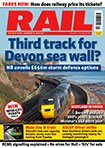
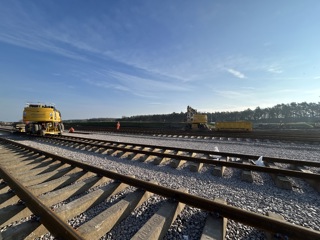
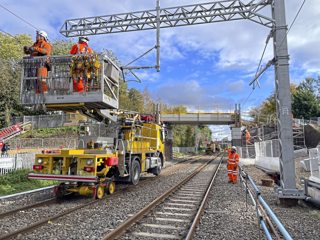

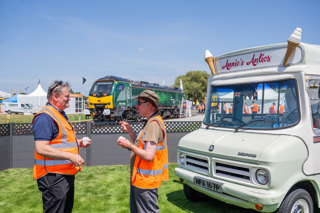
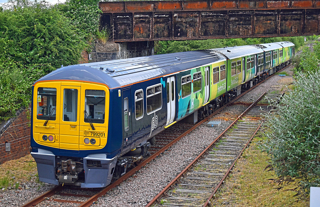











Login to comment
Comments
No comments have been made yet.